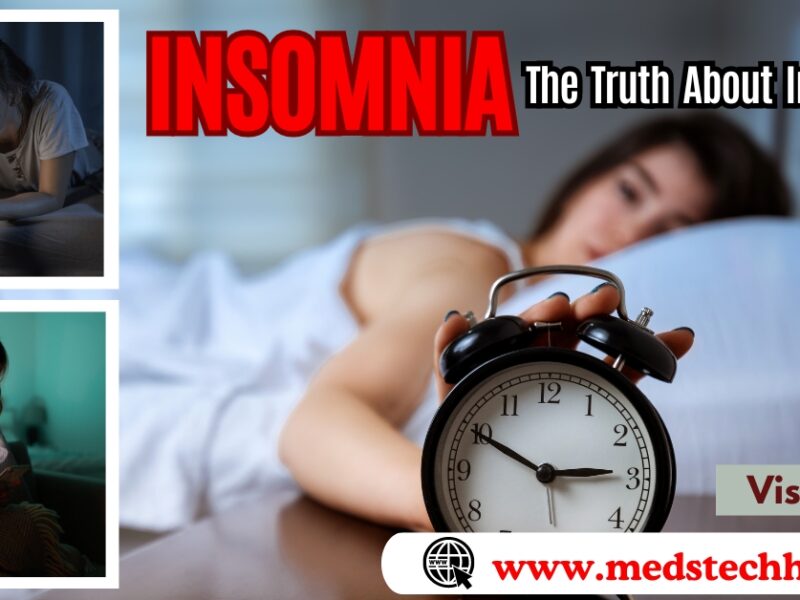Depression, a common mental health disorder, traps individuals in a cycle of sadness, hopelessness, and loss of interest or pleasure in activities. It can influence your thoughts, emotions, and ability to manage daily tasks. Depression can vary widely in severity and duration, and it can manifest differently in different individuals. Depression is a common but serious mood disorder that causes prolonged stretches of low mood and a lack of enthusiasm for things that were previously fulfilling. It can also lead to a variety of mental and bodily challenges and can hinder your capacity to function effectively.
Depression and Anxiety are same mental health conditions?
Depression and anxiety are two separate mental health conditions; although they are both common mental health conditions and they can sometimes occur together. Here’s a key differences:
- Depression: A mood disorder characterized by persistent feelings of sadness, hopelessness, and a loss of interest in activities you once enjoyed.
- Anxiety: A feeling of nervousness, worry, or unease about the future. People with anxiety may experience physical symptoms like a racing heart, shortness of breath, or muscle tension.
Types of Depression:
Following are some different types of depression:
- Major Depressive Disorder: This is the most common type many people experience this kind of depression.
- Bipolar Disorder: This is a mental illness that causes extreme mood swings that include emotional highs (mania or hypomania) and lows (depression).
- Dysthymia: This is a chronic form of depression that is less severe than major depressive disorder but can last for two years or more.
- Seasonal Affective Disorder (SAD): This type of depression is triggered by changes in seasons, most often in the winter.
- Peripartum Depression: Peripartum depression is a mood of disorder that can affect pregnant women and people who have recently given birth.
Symptoms of Depression:
The symptoms of depression can include:
- Feeling upset or depressed mood.
- Loss of interest in pleasure activities.
- Changes in appetite or weight.
- Trouble sleeping or sleeping too much.
- Loss of energy or increased fatigue.
- Feelings of worthlessness or guilt.
- Difficulty concentrating, remembering, or making decisions.
- Restlessness or feeling slowed down.
- Recurrent thoughts of death or suicide.
Risk Factors for Depression:
There are a number of factors that can increase your risk of developing depression, including:
- A family history of depression.
- A personal history of mental illness.
- Major life events, such as a death in the family, a job loss, or a divorce.
- Long-term stress.
- Medical illness.
- Substance abuse.
Causes of Depression:
The exact cause of depression is unknown, but it is thought to be a combination of genetic, psychological, and environmental factors.
- Genetic Factors: People with a family history of depression are more likely to develop the disorder.
- Brain Chemistry: Imbalances in brain chemicals, such as serotonin and norepinephrine, may play a role in depression.
- Medical Conditions: Some medical conditions, such as thyroid problems, can increase the risk of depression.
- Life Events: Significant life changes, like losing your job, grieving the loss of someone close, or the end of a romantic relationship, can increase the risk of depression.
Treatment of Depression:
Depression is a treatable condition. There are some effective treatments are available, including:
- Medication: Antidepressant medications can help to improve mood and relieve symptoms of depression.
- Therapy: Psychotherapy, also known as talk therapy, can help people understand and cope with their depression.
- Lifestyle Changes: Exercise, healthy eating, getting enough sleep and change your lifestyle. It can help to improve mental health and reduce symptoms of depression.
Also Read: AI Revolutionizing Healthcare: AI Benefits in Healthcare
Self-Care Strategies for Managing Depression:
Some professional treatment, individuals can incorporate self-care strategies into their daily routine to help manage depression:
- Practice Relaxation Techniques: Methods like deep breathing, progressive muscle relaxation, and mindfulness meditation are effective in alleviating stress and fostering a sense of calmness.
- Maintain a Routine: Establishing a daily routine can provide structure and stability, which can be particularly helpful for individuals struggling with depression.
- Set Realistic Goals: Break down that big goal into smaller, more manageable steps. Think of them as mini-milestones. Accomplishing small tasks can boost your mood and sense of accomplishment.
- Stay Connected: Maintain social connections with friends and loved ones, even if it’s challenging. Connecting with others and spending time with them can help you feel better and less alone.
- Limit Alcohol and Drug Use: Alcohol and drugs can worsen depression symptoms and interfere with treatment effectiveness. Limiting or avoiding these substances is important for managing depression.
- Engage in Enjoyable Activities: Make time for activities that bring you joy and fulfillment, whether it’s spending time outdoors, pursuing a hobby, or engaging in creative expression.
- Prioritize Self-Care: Take care of your physical health by eating nutritious foods, getting regular exercise, and prioritizing sleep. Taking care of your body can significantly boost your mental health.
Seeking Help for Depression:
Don’t hesitate to reach out for help if you or someone you know is experiencing with depression. A mental health professional can provide best and effective treatment.
- Talk to your Doctor: Start by discussing your symptoms with your primary care physician, who can provide an initial evaluation and refer you to a mental health specialist if necessary.
- Reach out to a Therapist or Counselor: A licensed therapist or counselor can provide individual or group therapy to help you learn coping skills, process emotions, and develop strategies for managing depression.
- Consider Medication: If your symptoms are severe or persistent, your doctor may recommend antidepressant medication to help regulate your mood and alleviate symptoms.
- Build a Support Network: Surround yourself with supportive friends, family members, or support groups who can provide encouragement, understanding, and empathy.
- Be Patient and Persistent: Recovery from depression takes time and effort, and there may be setbacks along the way. You’re not alone in this journey. Your treatment plan is a powerful tool, and support is always available if you need a boost.
Remember, depression is a manageable condition, and you are not alone. With an appropriate care plan, guidance, healthy habits and most important self-care it is possible to overcome depression and find renewed optimism and a better quality of life.




Good day very cool blog!! Guy .. Beautiful .. Superb .. I’ll bookmark your website and take the feeds I’m happy to find a lot of helpful information here in the publish, we want work out more techniques on this regard, thanks for sharing. . . . . .
We are a group of volunteers and starting a new scheme in our community. Your web site provided us with valuable info to work on. You have done a formidable job and our whole community will be grateful to you.
Hiya, I’m really glad I have found this info. Today bloggers publish just about gossips and web and this is really frustrating. A good web site with exciting content, that’s what I need. Thank you for keeping this web-site, I will be visiting it. Do you do newsletters? Can’t find it.
Great ?I should definitely pronounce, impressed with your website. I had no trouble navigating through all tabs as well as related information ended up being truly simple to do to access. I recently found what I hoped for before you know it in the least. Reasonably unusual. Is likely to appreciate it for those who add forums or anything, site theme . a tones way for your customer to communicate. Excellent task..
WONDERFUL Post.thanks for share..more wait .. ?